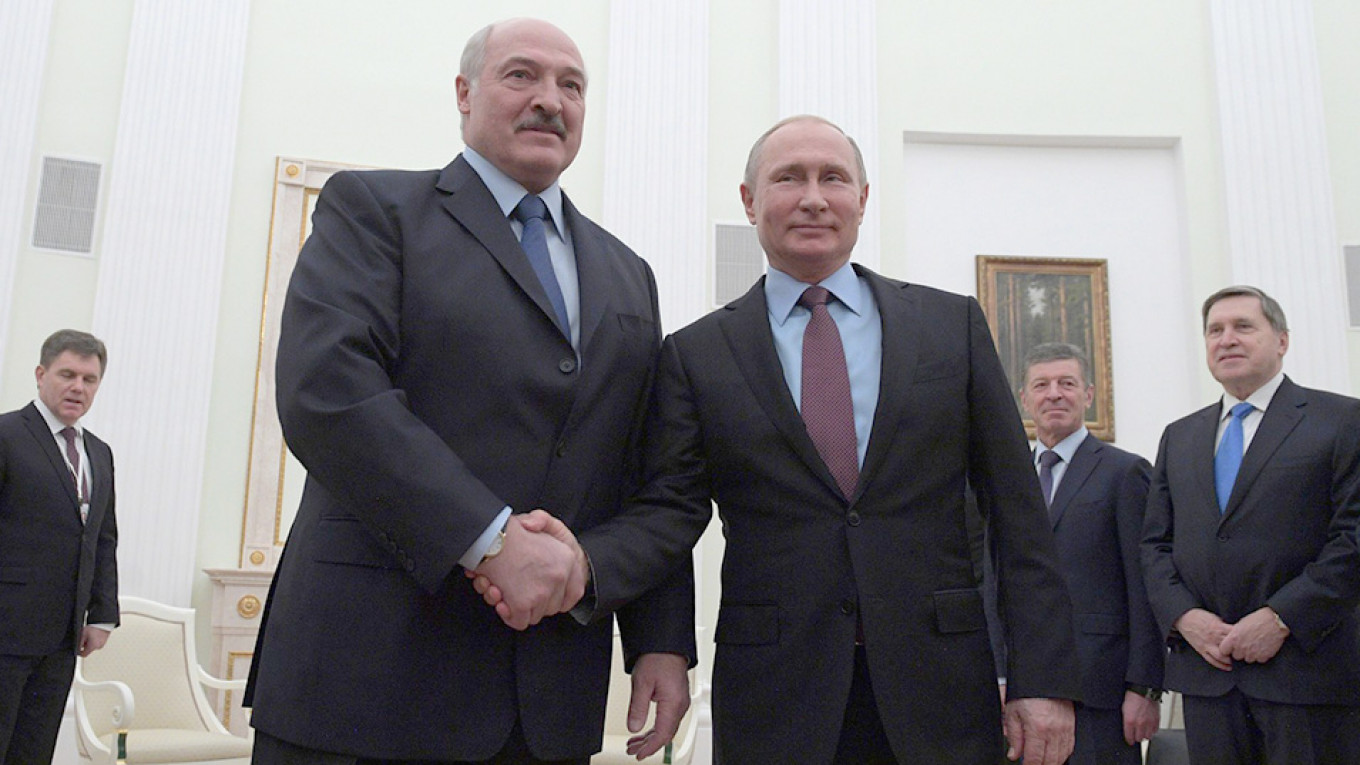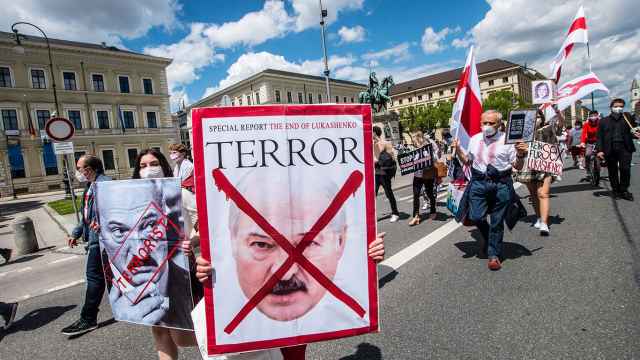Almost half of Russians oppose uniting with neighboring Belarus into a single country, according to a state-funded survey published on the 20th anniversary of the countries’ integration project.
The potential merger between Minsk and Moscow became a widely discussed possibility in 2019 as a potential loophole for Russian President Vladimir Putin to stay in power after his term ends in 2024. April 2 marks 20 years since the two countries signed a treaty establishing the Union State of Russia and Belarus.
According to poll results published by the state-funded VTsIOM pollster on Tuesday, 48 percent of Russian respondents said “unification is not necessary” between Russia and Belarus. Instead, they favored “good neighborly relations.”
VTsIOM sociologist Mikhail Mamonov said the results indicate a “hidden fear that [Russia’s union with Belarus] could produce a mixed bag for the Russian economy.”
The share of those who support an all-out merger between Russia and Belarus and those who think Belarus should join Russia as a regional subject was split into 18 percent and 17 percent, respectively.
The VTsIOM survey also revealed that only 10 percent of Russians have heard of the Union State of Russia and Belarus, an integration project between the neighbors. Over half of the respondents said they were hearing about the Union State for the first time, while 39 percent said they were vaguely aware of it.
Russia announced a $600 million loan to Belarus on the eve of the anniversary. Putin also sent a message of greetings to Belarussian President Alexander Lukashenko to mark the bilateral Union State’s anniversary.
The Russian president has voiced support for Russia to unite with Belarus as early as 2011.
VTsIOM conducted the survey among 1,600 Russians on Jan. 15.
A Message from The Moscow Times:
Dear readers,
We are facing unprecedented challenges. Russia's Prosecutor General's Office has designated The Moscow Times as an "undesirable" organization, criminalizing our work and putting our staff at risk of prosecution. This follows our earlier unjust labeling as a "foreign agent."
These actions are direct attempts to silence independent journalism in Russia. The authorities claim our work "discredits the decisions of the Russian leadership." We see things differently: we strive to provide accurate, unbiased reporting on Russia.
We, the journalists of The Moscow Times, refuse to be silenced. But to continue our work, we need your help.
Your support, no matter how small, makes a world of difference. If you can, please support us monthly starting from just $2. It's quick to set up, and every contribution makes a significant impact.
By supporting The Moscow Times, you're defending open, independent journalism in the face of repression. Thank you for standing with us.
Remind me later.






